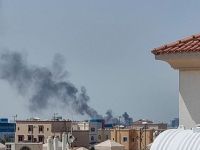How should Libya share its oil-wealth? If the political turmoil settles, that will be the big question facing the country’s new leaders. The country’s $150 billion reserves are twice the national GDP and more than enough to fund disarmament and a reconstruction bill put at $80 billion by JPMorgan.
Libya could look to its Arab neighbors for ideas on how to manage the remaining surplus, but Norway provides a better model. Libya’s per-capita GDP, at around $11,000 in 2010, means it was already around three times richer than Iraq before its revolution began. Under a new leadership friendly to the West and keen to facilitate foreign investment, Libya is likely to aim to double its pre-revolution oil production to over 3 million barrels per day. With oil accounting for around 80 percent of the country’s GDP, Libya could eventually match or overtake Saudi Arabia on a wealth-per-capita basis.
Diverting surplus oil revenues to cash handouts – whether to the whole population or just a part – is familiar in Kuwait and Saudi Arabia. This would be a tempting way to sustain tribal loyalties and tackle any sense of injustice given resentment toward Moammar Gadhafi’s lavish lifestyle. But the pressure to do so isn’t as large as might be imagined. Libyans already have access to low-cost food and energy, as well as free health care and education, although there is room to do more here. But oil-rich Norway provides a better example of how to tackle the issue. The Government Pension Fund absorbs surplus revenues from oil and licensing agreements, operates under strict investment rules, favoring foreign targets to prevent stoking domestic inflation. It is also sets the standard for sovereign fund transparency. The Libyan Investment Authority, which publishes little information and suffered losses on structured products last year, could adopt a similar model. Without transparency, the risk is that much of Libya’s wealth disappears, like Iraq’s billions.
Over the longer term, Libya could implement an extra layer of accountability through a partial privatization of the Libyan National Oil Corporation, like Norway’s Statoil – that would be an ambitious way to kick start diversification into the financial sector. Libya’s new leaders have pledged to make public funds transparent. If they are struggling for how to make that work in practice, they could do worse than look north.








